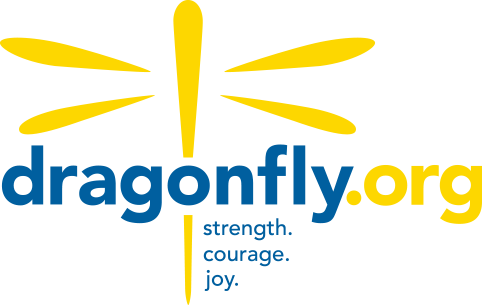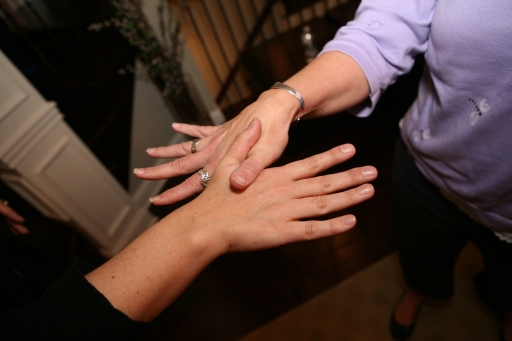Reposted from a blog by Matt Kabel: http://themighty.com/2015/08/10-things-id-tell-parents-who-just-found-out-their-child-has-cancer/#ixzz3lvinBwaa
Last week was a big moment for our family. Our 2-year-old daughter, Sally, received her last dose of scheduled chemo to treat a rare and aggressive form of infant leukemia. For two years, our little girl braved seizures, broken bones, extreme nausea and diarrhea, long in-patient stays and hundreds of hospital visits. There were many times during our treatment marathon that we weren’t sure if Sally would see this finish line, which comes with a plethora of emotions.
After her last chemo, we were packing up to leave when we saw the head of our leukemia team. Not knowing what to say to somebody who saved my little girl’s life, all I could muster was the most heartfelt “thank you” I’ve ever given. My wife echoed with a “we love you,” which I seconded. As he walked away, I noticed a woman, trailing him and wearing an expression on her face we knew all too well — she had just received devastating news.
As we were about to walk out the door, she engaged us, having heard what we had said to Sally’s doctor. She revealed her son had just been diagnosed with leukemia and wasn’t sure where to have him treated and felt overwhelmed. After providing her with our feedback and contact info, she was whisked off to yet another meeting with doctors. This interaction stuck with me all day. It brought me back two years prior when we were the ones overwhelmed with decisions no parent should have to make.
All day I regretted that I wasn’t prepared to give her advice about what her journey would bring. Below is a list of things I wish I had been able to tell her:
1. Take one day at a time.
This is a marathon, not a sprint. Taking it all in at once is overwhelming and will drive you crazy. Focus on the day at hand. Sometimes you have to take it an hour or even minute at a time when things are most stressful.
2. Welcome support.
That old saying, “It takes a village,” is especially true when dealing with a life-threatening disease. You are not a failure of a parent if you ask for and receive help. Sending meals, monetary donations, helping with childcare and doing your chores are ways people can help and take some of the burden off so you can focus on saving your child’s life.
3. Be your child’s advocate.
Your most important job in this situation will be acting as your child’s advocate. Know right away that the medical staff is not in charge, you are. Countless times we had to challenge doctors and nurses about decisions being made or medications given. You know your child better than anyone; if something doesn’t seem right, speak up, even if it temporarily frays some nerves.
4. Don’t second-guess.
Since you’re in charge, you’re the one who will make many of the big decisions. Life-saving ones. Whatever you decide, know that you did it with the best information you had and never second-guess it. Ever.
5. Embrace your nurses.
Doctors provide the plan, but the nurses are the ones on the battlefield with you. They will be the ones who get you through this and will often be your child’s biggest advocate when you’re not on the same page as the doctors. Many can also provide strong emotional support when it’s just you and your child in the hospital room late at night.
Lots of times people like to lift up parents raising a child with a life-threatening disease as superheroes. We’re not. We’re ordinary people put in an extraordinary situation. You’re going to make mistakes, lots of them. It’s OK, don’t beat yourself up. Learn from them and move on to the next challenge.
7. The family fights the disease together.
Maintaining a strong marriage and raising a family is stressful enough; adding in a sick child brings that stress to unthinkable levels. When one child has a disease, the whole family has the disease. It will be limited, but set aside personal time for you and your spouse to escape and be a couple, and one-on-one time with your other children who often get lost in the shuffle and miss your attention.
8. Rethink your personal goals.
Your aspirations will likely be put on hold, whether it’s that big promotion you wanted or that house you’ve been saving for. When my daughter was diagnosed, I had just finished my first marathon and was training for my first half-Ironman distance triathlon. I tried to maintain the training the first few weeks but was burning out. I realized I needed to put these goals on hold, and instead use exercise as a way to relieve stress and compensate for those stress snacks I was sucking down. Speaking of which…
9. Eat healthy.
Remember those “freshman 15” you packed on? Trust me when I say that you’re going to be tempted to eat poorly. Increased stress and lack of free time will make snacking dangerously convenient. Plus, people think they’re doing you a favor by sending cookies and cakes. They’re not. You need to stay healthy so that you’re strong for your child. Keep junk foods out of reach and try to keep fruit and healthy snacks around instead, and sleep when you can.
10. Vent your emotions.
You’re going to be under more stress than most people can even comprehend. You have to release that stress, and a good release of emotions can help maintain longterm sanity. But don’t do it in front of your child or any other child battling for their life. They need to see that you’re strong for them. Whether it’s your spouse, a family member or a bartender, you need to find somebody you can talk things out to without judgment. However, know that nobody will truly understand you unless they’ve walked in your shoes. Try and find another parent whose child had a similar battle or a support group to join. There are tons online.


